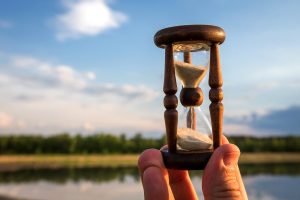While we have recently covered the challenges surrounding COVID-19, there are still understandably many questions being asked about this subject, some of which we try to here.
Can you claim compensation for catching COVID-19?
The answer is yes, and no. The act of catching COVID-19 is unlikely to lead to a personal injury compensation claim. The way in which you caught COVID-19 is something that could well be covered by personal injury compensation regulations. What’s the difference?
- No individual/company is to blame for COVID-19
Unless the authorities were able to identify an individual, company, or government as the creator of COVID-19, the simple fact of catching COVID-19 is very different from negligence. The virus is out there and therefore no one party can be held responsible without watertight evidence.
- Protecting individuals
The subject of protecting individuals from COVID-19 is a whole different matter. We know the dangers of the coronavirus, we know how it is spread and we know the symptoms. It is therefore down to individuals, companies and governments to act accordingly. If you were to catch COVID-19 in your workplace, as a consequence of negligence by your employer, you may be able to pursue a claim for compensation.
Taking the appropriate precautions
Let us take a look at specific scenarios which may lead to personal injury compensation claims as a consequence of catching COVID-19. This is just a relatively small selection but it will give you an idea of the responsibilities of individuals, companies, and governments.
Individual responsibility toward COVID-19
We all have a collective responsibility to take the appropriate precautions when it comes to the spread of COVID-19 – legally, where new regulations are enshrined into law. The government advice to this aspec is quite simple:-
- If you have symptoms, isolate yourself
- Immediately request a COVID-19 test
- If your test is positive then isolate for 14 days (subject to change)
- If your test is negative, there is no need for further isolation
Unfortunately, we are seeing more and more people “confused” or simply ignoring government advice. We have seen individuals with symptoms unwilling to take a test, and some people have failed to isolate while waiting for test results. There are even some who put others at risk by not isolating even knowing they have tested positive. It is conceivable that those walking freely during what should be an isolation period could spread the virus to many people. Is this negligence?
Yes. It will be interesting to see how the courts and the personal injury claims companies address future COVID-19 issues. There are some specific challenges:-
- Proving an individual passed the virus to you
- Proving negligence
These comments then prompt the question, if an individual or group of people have been put at risk by an infected person, does it matter whether they actually contract COVID-19? If you later found out that the individual should have been isolating this could lead to significant mental health trauma. There is also the process of isolating, testing and awaiting the outcome – with potential loss of income. The argument is interesting; if a person has been negligent in mixing with others when they should have been in isolation, then surely it matters not whether other parties actually contracted the virus? Negligence is negligence, no matter what the outcome.
Corporate responsibilities toward COVID-19
We have covered corporate responsibilities in one of our earlier articles, something which is often focused on while similar issues are overlooked. There are numerous workplace regulations which offer protection to employees such as:-
- Health and Safety at Work Act 1974
- Control of Substances Hazardous to Health (COSHH)
- Respiratory Protective Equipment at Work
- Controlling Airborne Contaminants at Work
Whether we are looking at COVID-19 or other specific issues in the workplace, if employees are put in danger as a consequence of employers failing to abide by legislation, this could be deemed as negligent. Again, it is worth reiterating that while no individual, company or government can be held responsible for the emergence of COVID-19 thus far, protecting others from the virus is a very different matter.
There are a number of actions which employers can take in order to both protect their business and employees:-
- Provision of PPE
Personal protective equipment (PPE) was very much in the headlines early on. Thankfully there are numerous companies across the UK providing PPE for their employees. However, we have also heard stories of inappropriate or inadequate PPE being made available. The provision of PPE is just one element of the protective regulations for employees. This equipment needs to be appropriate and of adequate quality to provide the protection required. Providing substandard PPE may prompt claims of negligence.
- Health and safety regulations
One very important element of the employment market is the need for employers to keep employees up-to-date with new health and safety regulations. To say this is a challenge at the moment is an understatement. There are changes most weeks, adjustments and with greater understanding of the virus, reams and reams of advice. It is important that employees are able to relay this information and guidance to their employees as quickly as possible. Failure to do so has been proven to be a common source of negligence claims in the past.
- Active businesses
We have seen the emergence of new regulations regarding specific business activities, most notably in the hospitality trade, but all businesses need to consider whether it is safe to trade. If it is safe, should employees be working from home or can they still attend the workplace? We can only imagine the huge pressures on employers and employees with regard to the potential risks associated with COVID-19. There is no right or wrong answer as much of the guidance is subjective. However, if business owners continue trading when it is “obvious” there are undue risks, they may well be found negligent.
Government responsibility toward COVID-19
All governments have a team of legal experts on hand to advise them with regards to changes in legislation. We can safely assume that government legal advisers are currently working overtime in light of the COVID-19 pandemic. It is easy to forget but governments have a responsibility to the wider public and business sectors. They are not above the law. They can’t pick and choose which regulations they abide by and they can be held responsible for negligent actions.
- Investigation into care home deaths in Scotland
It was recently confirmed that the police are looking into care home deaths in Scotland after concerns were raised regarding procedures and the actions of various parties. It is widely believed that the Scottish government will be included in this investigation but as yet nothing has been confirmed.
If parties or individuals were found to be negligent in their treatment of elderly patients, they will be held to account. In the event of any prosecutions, the courts will be obliged to take into account the unique circumstances surrounding COVID-19. One of the main barometers for negligence is whether individuals of a similar stature would have done the same as the defendant, in a similar situation. As ever that will be the crux of the matter.
- Government policies under the microscope
We only need to look at the recent public disagreement between the Greater Manchester authorities and the UK government, to see how government policies are constantly under the microscope. There was talk of legal action, refusal to follow central government instructions with claims and counterclaims on both sides. Thankfully, the parties finally came to an “agreement” and the UK government has since introduced a new process for calculating local lockdown compensation payments.
Many people automatically assume that governments are beyond the reach of laws which individuals and companies abide by. This is not the case. We have seen and we will continue to see governments taken to court as a means of keeping them in check. The subject of compensation for legal/inappropriate government decisions is a little more complex but there have been compensation payments in the past.
Collective responsibility in fighting COVID-19
As and when the courts are back to normal we will likely see a number of personal injury prosecutions relating to COVID-19. While the court will take into account the unique conditions surrounding the COVID-19 pandemic, negligence is still negligence. At this moment in time many people are simply focused on getting through the pandemic and back to a more traditional life. It is probably in the aftermath of the pandemic that many will look back, consider their options, and maybe seek personal injury compensation – if they contracted the virus as a consequence of negligence.
There is a three-year window of opportunity for those looking to pursue compensation. The clock will start ticking on the day the individual was diagnosed with COVID-19. The discovery of so-called “Long COVID-19” has also added more confusion to the mix. It would appear that some individuals will suffer long-term consequences from their COVID-19 infection.
Summary
Whether an individual, company or government, we all have a responsibility to act appropriately during these very challenging times. However, negligence is still negligence although the courts will likely take into account the unique scenario in which we live today. That said, if it can be proven that an individual, company or government were in any way negligent, resulting in infection or mental stress for an individual, they may well be exposed to claims for compensation. We will literally see a rewriting of the record books with regard to COVID-19 compensation claims, which will likely create a blueprint for any similar outbreaks in the future.



